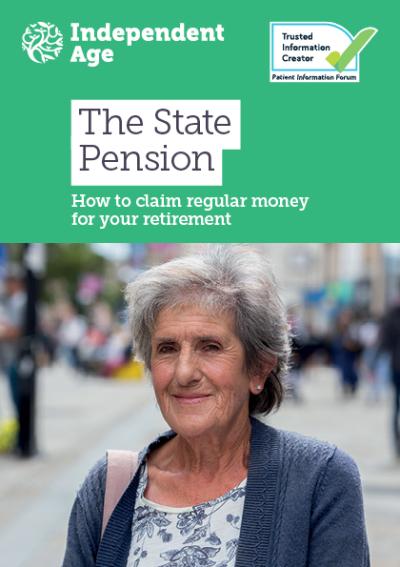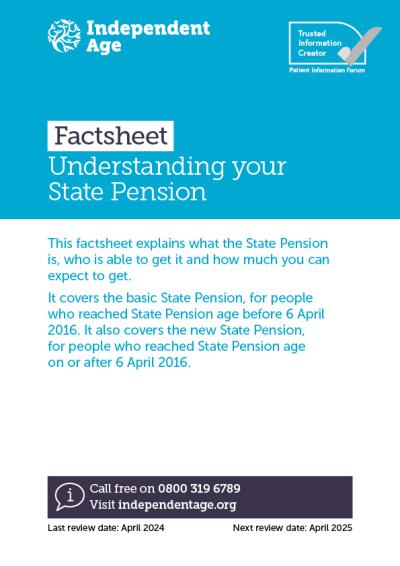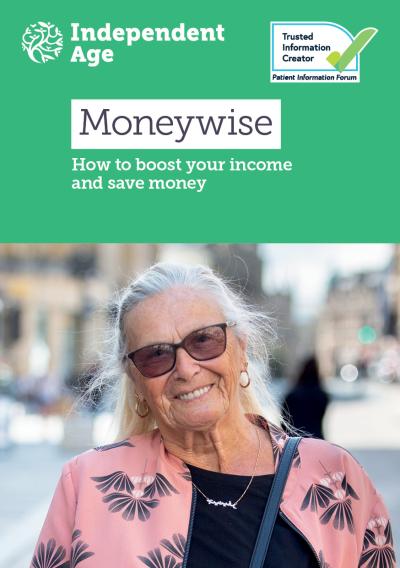Related publications

The State Pension

Understanding your State Pension

The age you can claim State Pension is gradually increasing. If you’re a woman who was born in the 1950s, you may have been affected by this. If you have to wait longer for your State Pension and don’t have alternative plans in place, it’s important to get any help you’re entitled to.
For women born in the 1950s, the increase to the State Pension age in recent years may have meant waiting up to six years longer than expected for their State Pension. If you are a transgender woman, this information will apply to you as well – find out more at Gov.uk.
Working patterns were different in the past. As a woman born in the 1950s, you may be more dependent on the State Pension because you:
Because the State Pension age has changed, you might not have had enough time to make other financial plans. Or you might have made decisions, such as accepting redundancy, because you thought you‘d be getting your pension sooner than you now can.
In the past, it was possible to claim larger State Pension payments based on a spouse or civil partner's National Insurance (NI) record. The people most likely to benefit from this are married, divorced and widowed women born before April 1953.
The Pension Service provided by the Department for Work and Pensions (DWP) has responsibility for the State Pension and has acknowledged that some of these people have been underpaid their State Pension. It is carrying out an exercise to put this right.
If you think you’re affected, contact the Pension Service to ask them to check your State Pension has been correctly calculated. You can do this whether you’re claiming or delaying your State Pension.
If you’re facing financial difficulty because of the changes to the State Pension, make sure you’re claiming all the benefits you’re entitled to. Depending on your circumstances, you may be able to get:
If you’re living with a health condition or a disability, you may be entitled to additional support, such as Personal Independence Payment or Attendance Allowance.
To find out what you could get, use our benefits calculator or call our Helpline for a free benefits check. You can also contact your local Citizens Advice for help.
Check whether you qualify for grants from charities to help with some of your costs, such as travel, housing, energy or unplanned expenses. Or read our factsheet Extra help with essential costs if you’re on a low income.
If you're looking after someone else, there is help available. You may qualify for Carer's Allowance or the Carer's Element in Universal Credit. If you live in Scotland, you may also qualify for Carer's Allowance Supplement.
Make sure to check that the person you’re caring for is getting all the support that they’re entitled to. Carer's Allowance could affect their benefits, so seek advice before claiming.
For more information about what help is available, read our guide Caring for someone.
Many employers value the skills and experience of older workers. If you need to continue working but can’t or don’t want to work full-time, you may be able to organise more flexible working arrangements with your employer.
Remember that you don't have to say how old you are when you apply for a job, or put your date of birth on your CV. Employers are not allowed to discriminate on the grounds of age.
Contact the National Careers Service or your local Jobcentre Plus for help to improve your CV or interview technique. You can also pick up new skills on Hi Digital, a free online resource with courses to help you feel more comfortable using digital technology.
For help with State benefits, call our Helpline.
For impartial guidance about your pension, contact MoneyHelper.
To find a regulated financial adviser, search on MoneyHelper, the Society of Later Life Advisers or Unbiased.